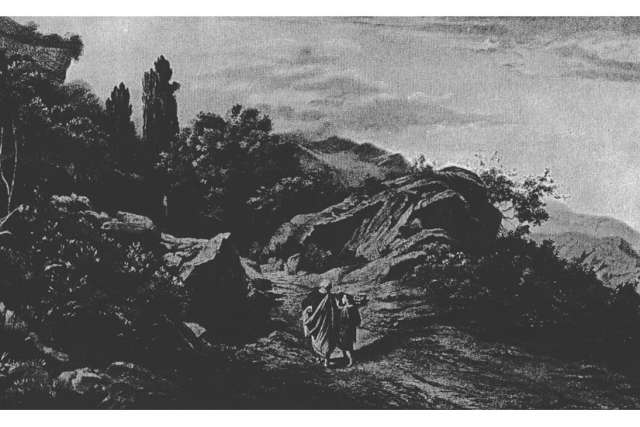Today’s Old Testament and Gospel readings take place on two important biblical mountains — Mount Moriah and Mount Tabor. Both readings give us profound insights into our God and His Son, Jesus, our Saviour.
The weak before God will receive the power
By Fr. Scott Lewis, S.JThird Sunday of Lent (Year B) March 8 (Exodus 20:1-17; Psalm 19; 1 Corinthians 1:18, 22-25; John 2:13-25)
The Ten Commandments are often viewed as obsolete and out of touch with the modern world. They are unfortunately treated as if they were the 10 suggestions rather than commandments. Even those who use them as weapons in the culture wars of our times are sometimes hard-pressed to name all of them.
God holds nothing back
By Fr. Scott Lewis, S.JSecond Sunday of Lent (Year B) March 1 (Genesis 2:1-2, 9-13, 15-18; Psalm 116; Romans 8:21b-35, 36; Mark 9:2-10)
God leaves no one behind
By Fr. Scott Lewis, S.JFirst Sunday of Lent (Year B) Feb. 22 (Genesis 9:8-15; Psalm 25; 1 Peter 3:18-22; Mark 1:12-15)
The eyes are the windows to our souls
By Fr. Ron RolheiserMost of us worry about aging, especially in how it affects our bodies. We worry about wrinkles, bags under our eyes, middle-age fat and losing hair where we want it only to find it on places where we don’t want it. So every now and then, when we look in a mirror or see a recent photograph of ourselves, we are shocked at our own faces and bodies, almost not recognizing ourselves as we see an old face and old body where we are used to seeing a young one.
Accept the other
By Fr. Scott Lewis, S.JSixth Sunday in Ordinary Time (Year B) Feb. 15 (Leviticus 13:1-2, 45-46; Psalm 32; 1 Corinthians 10:31-11:1; Mark 1:40-45)
Those whom we despise, fear and exclude often reflect our own fear and lack of love. They show us who we are inside, and that is why we fear them so much. The ancient scourge of leprosy was a perfect example.
Finding the positive side of melancholy
By Fr. Ron RolheiserNormally none of us like feeling sad, heavy or depressed. We prefer sunshine to darkness, lightheartedness to melancholy. That’s why, most of the time, we do everything we can to distract ourselves from melancholy, to keep heaviness and sadness at bay. We tend to run from those feelings inside us that sadden or frighten us.
Hope, perseverance will see us through
By Fr. Scott Lewis, S.JFifth Sunday in Ordinary Time (Year B) Feb. 8 (Job 7:1-4, 6-7; Psalm 147; 1 Corinthians 9:16-19, 22-23; Mark 1:29-39)
When things go reasonably well and we are basically happy, then life itself seems positive and even joyful. But when illness, personal failures, pain and misfortunes make their appearance, our world can change in an instant. Life can seem negative, painful, dreary and futile. Even the things that used to bring us joy lose their lustre.
Why we bother with Lent
By Mary MarroccoHow do you climb a sheer rock face, 900 metres tall (that’s almost two CN Towers), with one difficult section stacked on another all the way up? Why would you climb it? And with whom?
God’s love embraces all denominations
By Fr. Ron RolheiserChristian de Cherge, the Trappist Abbott who was martyred in Algeria in 1996, was fond of sharing this story: He had a very close Muslim friend, Mohammed, and the two of them used to pray together, even as they remained aware of their differences, as Muslim and Christian.
Our words must reflect our lives
By Fr. Scott Lewis, S.JFourth Sunday in Ordinary Time (Year B) Feb. 1 (Deuteronomy 18:15-20; Psalm 95; 1 Corinthians 7: 32-35; Mark 1:21-28)
Movements and new organizations often do not survive the death of the founder. Usually something vital is lost and the original charism begins to fade.











